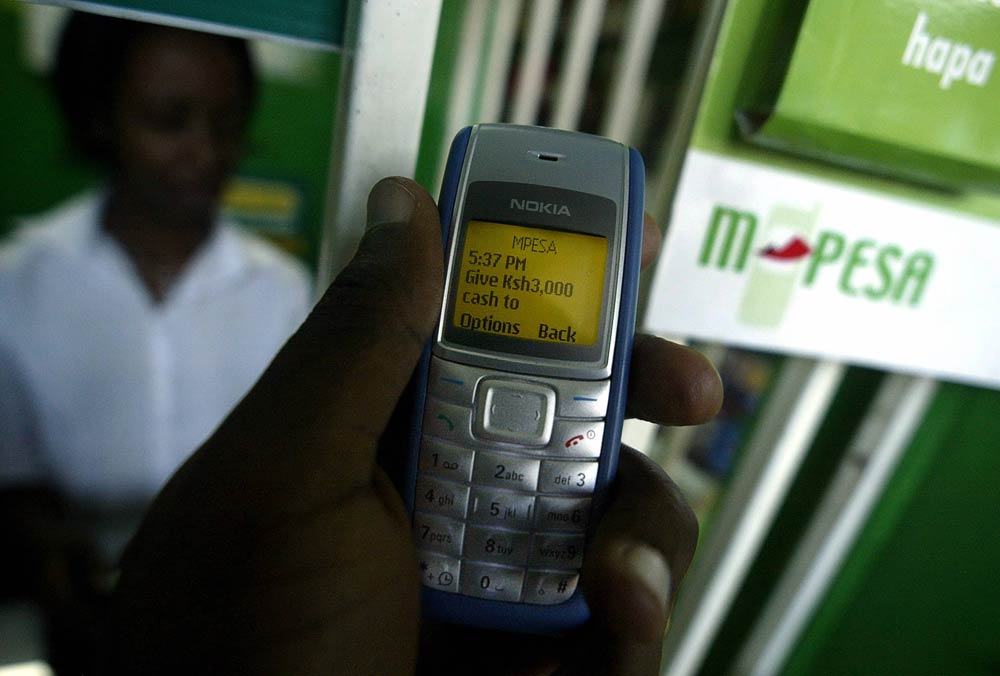Africans have long used technology developed abroad, but now a Kenyan cash transfer network which bypasses banks is being adopted in Europe.
The M-Pesa mobile money transfer system which allows clients to send cash with their telephones has transformed how business is done in east Africa, and is now spreading to Romania.
“From east Africa to eastern Europe, that’s quite phenomenal when you think about it,” Michael Joseph, who heads Vodafone’s Mobile Money business, told AFP in the Kenyan capital Nairobi.
“I think that this is something the rest of the world can look at, to say that there are ideas that can emanate out of the developing world, and take it to the developed world.”
M-Pesa – or “mobile money” in east Africa’s Swahili language – was introduced in Kenya in 2007 by Safari.com, the country’s largest mobile telecommunications company, in partnership with British giant Vodafone.

Since then the service has grown exponentially, with about $40-billion flowing through the service in Kenya alone.
Part of daily life
In Kenya, the system has become a part of daily life, with more than 18-million customers, and is used by almost two-thirds of the population with more than eight million transactions daily.
The network allows customers to bypass the traditional banking system, using an application available on the simplest of mobile phones to pay utility bills, buy a drink in a bar, or send cash to family and friends.
Romania is the latest nation Vodafone is tapping, with its first European launch last March.
For Michi Carstoiu, an engineer in the capital Bucharest, M-Pesa complements established online payment services.
“Most importantly, I save time – plus I think the transaction fees are smaller,” Carstoiu told AFP, shortly after activating his mobile phone account at one of the 1 000 outlets already open.
The number of distribution points is expected to triple by the end of the year.
“Everyone has a mobile phone, and it is very simple to send and receive money or make payments,” he added.
Users can charge up their phones by paying in cash at mobile-money agency points, and often at one of the points where they are doing a transaction.
Similarly they can withdraw cash against mobile-money credits at an agency, or when settling a bill, much in the same way as customers in Europe can obtain cash at some supermarkets when using bank cash cards.
Agents are often found in the form of shops or street kiosks.
The outstanding credit can be sent via a special text message to others for a small transaction fee.
African countries using the system include Egypt, Lesotho, Mozambique and Tanzania, and it has also been rolled out in India.
A savings version has been set up as well, allowing those without access to formal banking systems to earn interest on their savings.
The scheme has largely succeeded in Kenya because it meets the needs of millions of people without a bank account who would otherwise operate strictly within a cash economy.
They benefit from a network of M-Pesa agents spread across the country.
Romanians reliant on cash
Officials said that Romania was chosen as the European launchpad because many people in the eastern European country still rely on cash.
“The majority of people in Romania have at least one mobile device, but more than one third of the population do not have access to conventional banking,” Joseph said.
He is targeting seven million potential Romanian customers who operate in cash alone, and the company aims to reach 300 000 customers by the year’s end.
More than $1.2 billion worth of person-to-person transactions are sent on the system each month worldwide, according to Vodafone.
In Kenya, transactions can be as small as a single cent or as much as $1 600, while in Romania up to $9 000 can be sent each day.
Moving beyond emerging markets means adapting to fresh challenges however.
The operator will face different regulatory environments, and consumers who already have access to a wide range of financial services.
For Kenyans, where the network is used for everything from paying for grocery shopping and restaurant tabs to sending cash to relatives in remote regions, the spread abroad has given some a sense of pride.
In a way, the M-Pesa system has taken banking full circle, back to the founding principles of Venetian banking when money changers began keeping ledgers of credits and debits for traders who did not want to carry gold and silver with them.
These money dealers set up networks of correspondents, or agents, who ran parallel ledgers, enabling traders who otherwise had no “banking” system, to settle accounts, paying in or drawing out cash only when necessary.
“Technology that started out in Kenya is being exported to Europe,” said 24-year-old Rhoda Kibuchi, who runs an M-Pesa outlet in Nairobi. “It’s good news.”
